
Microsoft Edge is now the second most popular web browser
Google Chrome is still the leader of the pack, but there's a different rival tailing it. New figures show that Microsoft Edge is now the second most used browser in the world, pushing Firefox down into third place.
The silver medal now belongs to the Chromium-based version of Edge on the desktop which has seen a great increase in popularity, even though it has only been available for a matter of months.
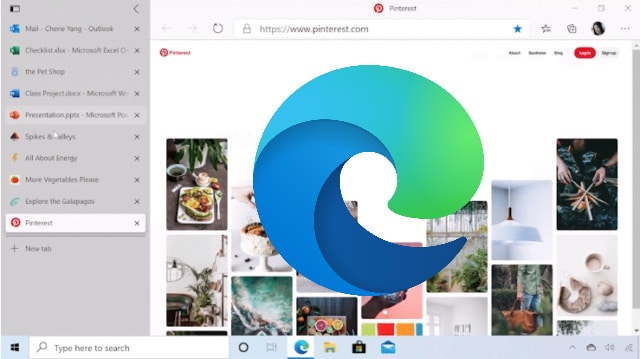
Microsoft is bringing vertical tabs to Edge so you can make better use of your widescreen monitor
Websites are, on the whole, vertical experiences, whereas laptop screens and desktop monitors are, in most cases, horizontal ones. Despite the relatively limited amount of vertical space available, browsers tend to further reduce this by placing tabs, menus, toolbars and more at the top of the screen. But Microsoft is ready to try something different.
The company has announced a number of new features that are coming to the new Chromium-based version of Microsoft Edge. Among these features are vertical tabs which make more efficient use of screen space.

Microsoft Edge finally gains extension synchronization
If you've used Firefox, Chrome or numerous other browsers, you'll be used to the extensions you install synchronizing between device. This simple but wonderfully handy feature is something that has been sadly lacking from Microsoft Edge, but now this is changing.
Microsoft has promised extension syncing for a little while, and the company is finally starting to roll it out to users. But not everyone is going to get the feature right now.

Microsoft says new versions of Edge are on hold for the time-being
The effects of the coronavirus pandemic are widespread and varied across the tech world. Streaming video services have been reducing quality to ease the strain on the internet, support for old versions of Windows has been extended, and many brand-new cinema releases have been pirated earlier than normal.
In addition to delaying the end of support for Windows 10 version 1709, Microsoft also says that the COVID-19 crisis will impact on the development of its Edge browser. This means that Edge 80 is the last stable build we're going to see for a while.

Firefox 74 tightens add-on security, simplifies importing data from Microsoft Edge
Mozilla has released Firefox 74.0 for desktop, along with Firefox for Android 68.6.0 and Firefox ESR 68.6.0.
Firefox 74.0 ships with several new features, none of which are jaw-dropping, but all of which serve to further improve the browser’s privacy, security and usability. In addition, the Facebook Container add-on now gives users control over which sites are blocked from reporting back to Facebook.
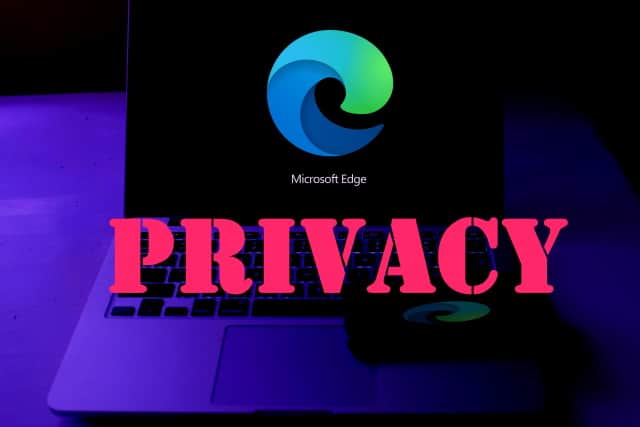
Microsoft Edge has more privacy-invading telemetry than other browsers
Microsoft may be making great claims about the speed and security of Edge, but a recent study found that the browser is one of the least private. Douglas J Leith from the School of Computer Science & Statistics at Trinity College Dublin, Ireland, tested six web browsers to determine how often they phoned home, and what data they were sharing.
He pitted Google Chrome, Mozilla Firefox, Apple Safari, Brave Browser, Microsoft Edge and Yandex Browser against each other, and the results were rather damning of Edge. Among the findings was the disturbing fact that all URLs typed into Edge are shared with multiple Microsoft sites, as are unique hardware identifiers, opening up the possibility of history tracking.

Microsoft Edge now supports Chrome themes -- here's what you need to know
Since switching to the Chromium engine, Microsoft Edge just became a whole lot more interesting -- and development has sped up dramatically.
As well as speeding up Edge, Microsoft has been busy adding new features such as a Potentially Unwanted Apps blocker, support for Chrome extensions and more. One of the latest changes does nothing to add new features, but it is important for anyone concerned with aesthetics; there is now support for Chrome themes to change the look of the browser.

How to play the secret surfing game in Microsoft Edge -- and unlock the hidden NinjaCat player
Everyone loves a good Easter Egg, and Microsoft Edge has an absolute belter -- a hidden surfing game that you can even play using your Xbox controller.
The game was originally used by Microsoft when it was revealing the new logo for Edge, and it is designed -- much like Chrome's dino game -- to give you something to do when you're offline. The surfing game itself is a great bit of fun; here's how to access it, and how to unlock the secret NinjaCat character.
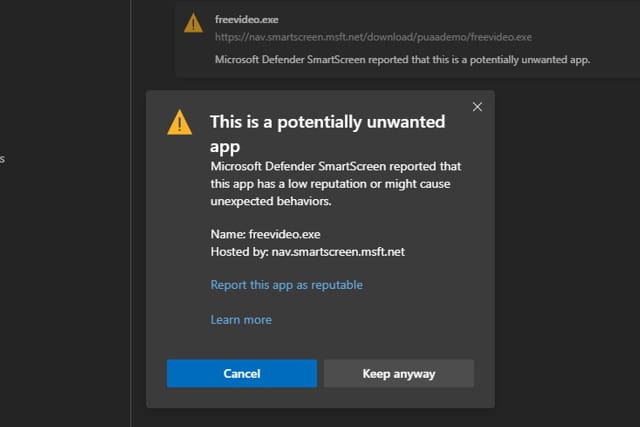
Updated Microsoft Edge will protect you from malware, crypto miners and more
With the switch to the Chromium engine, there's a lot more to like about Microsoft Edge these days. Microsoft is now pushing the browser hard, with the promise of serious speed improvements being used as a lure.
The latest update offers something extra -- protection against potentially unwanted applications (PUA). Microsoft Edge will now step in and block adware, cryptocurrency miners and other unwanted nonsense, particularly when downloading free software. The Microsoft Edge Team explains how to get the most from the protection.

Microsoft starts to roll out the new Edge on Windows 10 systems
Microsoft released the new Chromium-based Microsoft Edge web browser officially on January 15, 2020. The Edge web browser had to be installed manually up until now on supported systems.
Microsoft did reveal in January 2020 that it had plans to push the new Microsoft Edge browser via Windows Update. The company planned to migrate customers running Windows 10 to the new Edge starting "with a subset of Windows Insiders in the Release Preview ring".

Google displays warning in Microsoft Edge encouraging users to switch to Chrome
Having embraced the Chromium engine, Microsoft Edge now gives users the chance to install Chrome browser extensions -- but Google would rather you just stick with Chrome in the first place.
The company has start to display warning messages to anyone who has the audacity to visit the Chrome Web Store using Microsoft Edge with a view to downloading extensions. The message advises users that "Google recommends switching to Chrome to use extensions securely" and includes a link to download the browser. The browser wars are back, complete with sneaky underhand tactics.

Enable lazy loading in the new Edge to speed up your browsing
The new Chromium-based Microsoft Edge web browser shares many features with other Chromium-based browsers such as Google Chrome, Vivaldi and Opera.
Google started to integrate native lazy loading support in Google Chrome recently (in Chrome 76 to be precise), and it appears that Microsoft added these capabilities to Microsoft Edge as well.
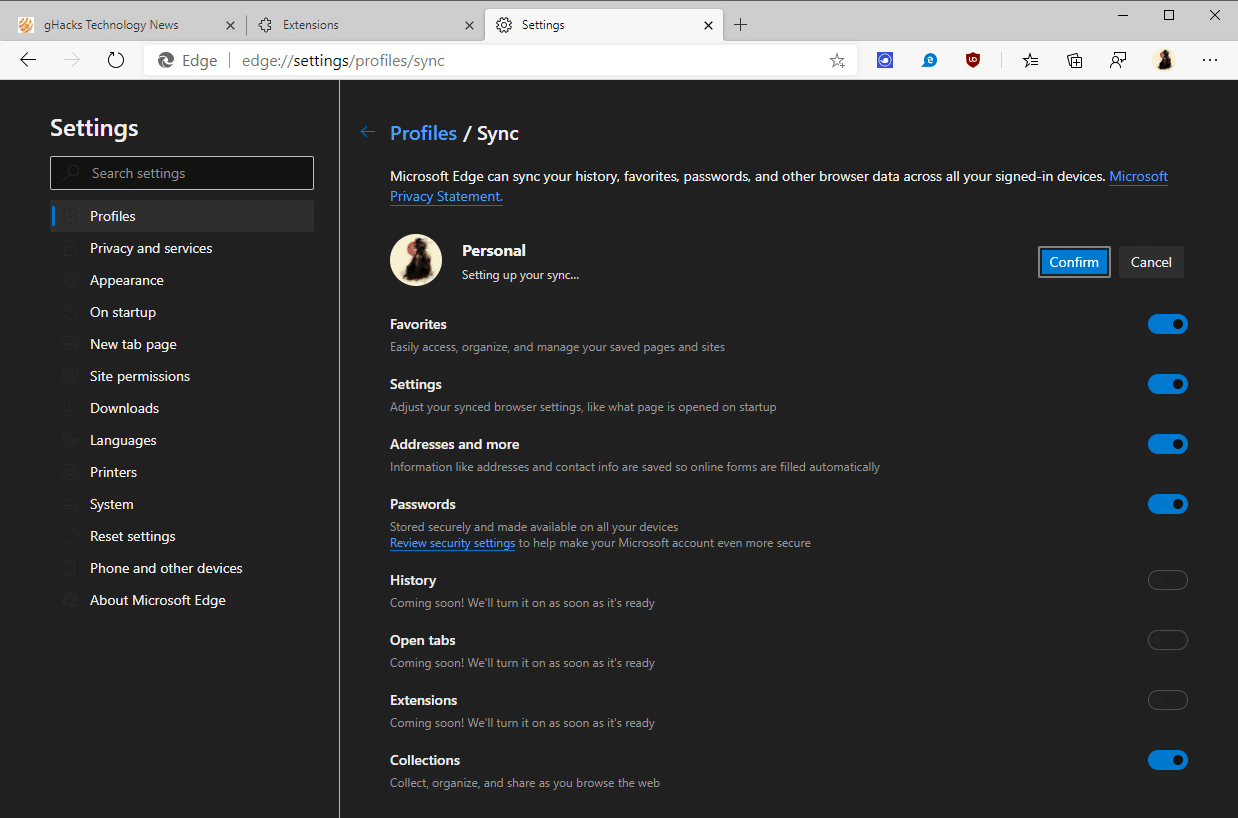
Edge users will soon be able to sync their extensions and collections
Users of the new Microsoft Edge web browser may soon be able to synchronize extensions and collections using the web browser's built-in sync functionality.
Microsoft started the rollout of the feature in the latest Microsoft Edge Canary version, currently at version 82.0.425.0. While it is not available for all Canary users yet, it is expected that the number will increase in the coming weeks and that the options will be pushed to the Beta and Stable channels of Microsoft Edge eventually.

Microsoft claims massive speed boost in preview builds of Edge
Anyone using the Dev or Canary builds of Microsoft Edge gets to try out all of the latest features and improvements early, and Microsoft says that the latest builds boast huge speed improvements.
The enhanced performance is significant. Microsoft claims improvements of up to 13 percent -- meaning that this is the sort of speed boost that should be noticeable in use, not just measurable in tests.
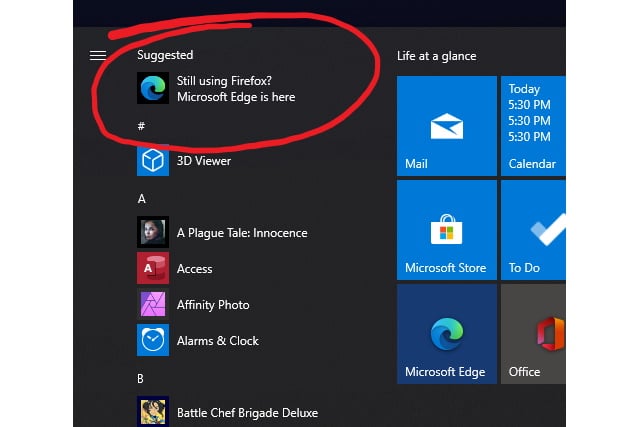
Microsoft uses Start menu ads to promote its Edge browser
Microsoft recently released the Chromium-based version of its Edge browser, and now the company seems to be on an all-out offensive to promote it.
Ads have started to appear in Windows 10's Start menu suggesting that Firefox users should try Microsoft Edge instead. This is not the first time the Start menu has been used by Microsoft to promote software, and it's a move that is likely to win the company a few enemies.
